Beijing's message behind the closure of Hong Kong's Apple Daily
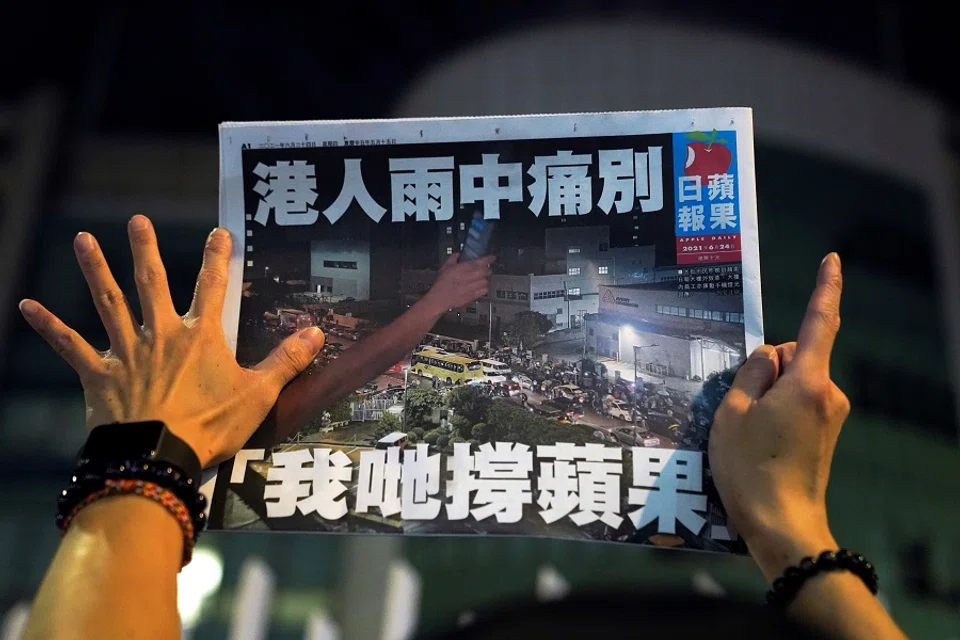
Yesterday, Apple Daily, Hong Kong's most high-profile pro-democracy newspaper, printed a million copies of its final edition, marking the end of its 26-year history. Its website and app have stopped running as well. Since the stroke of midnight, all that remains is a notice for subscribers and this message: "Good luck, and goodbye."
Some say Apple Daily's closure is a "1 July tribute" to the 100th anniversary of the founding of the Chinese Communist Party and the handover of Hong Kong. Whether this is praise or sarcasm depends on one's values and what they think about the current "one country, two systems". Do they see Apple Daily as colluding with the US and "a platform for incitement" of troublemakers, or do they see it as a symbol of Hong Kong's press freedom? In reality, both views are present in society. For example, some Hong Kongers gave thanks outside the Next Digital headquarters before the paper ceased operations. There were others who waved banners and popped a bottle of champagne to celebrate. Both camps are in opposition to each other.
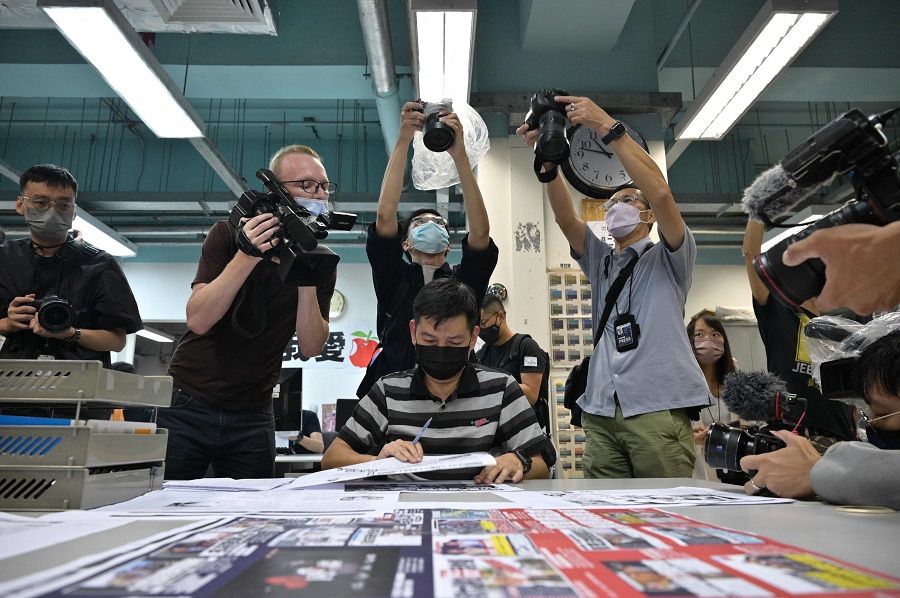
The writing was on the wall
I discussed Apple Daily's demise with a few of my Hong Konger friends on Wednesday night. They had mixed feelings about it, though they wouldn't consider themselves loyal supporters of the paper. Hong Kong's politics, education and civil service have been systematically cleaned up over the past two years. It is not unusual for the remaining forces of the 2019 anti-extradition bill protests to fall like dominoes. Apple Daily is just one of the many media outlets that have met their demise and others are likely to follow. Nonetheless, my friends lamented the sudden closure of one of Hong Kong's best-selling newspapers, and the major changes in Hong Kong that this incident has revealed. They felt that the originally diverse Hong Kong has just lost a few more of its diverse voices.
It had a vibrant and dynamic existence, garnering criticisms and applause at the same time.
Actually, around May this year, talk about Apple Daily's inevitable closure before 1 July had already leaked through political circles. Last Thursday, 500 police officers raided Next Digital's headquarters, detained Apple Daily executives, froze their assets, and took away reporters' computers and hard disk drives. This raid foreshadowed the paper's fate. The organisation originally said that it would cease operations on 26 June, but it announced on the afternoon of 23 June that it would close the next day. Hong Kong's Initium Media reported that the atmosphere at the headquarters on 23 June was not gloomy and sad as one might expect. While hugs were exchanged and tears were shed, everyone said goodbye with a smile. There was a happy and light atmosphere that was very palpable and ran counter to the fact that the life of the paper was about to be extinguished.
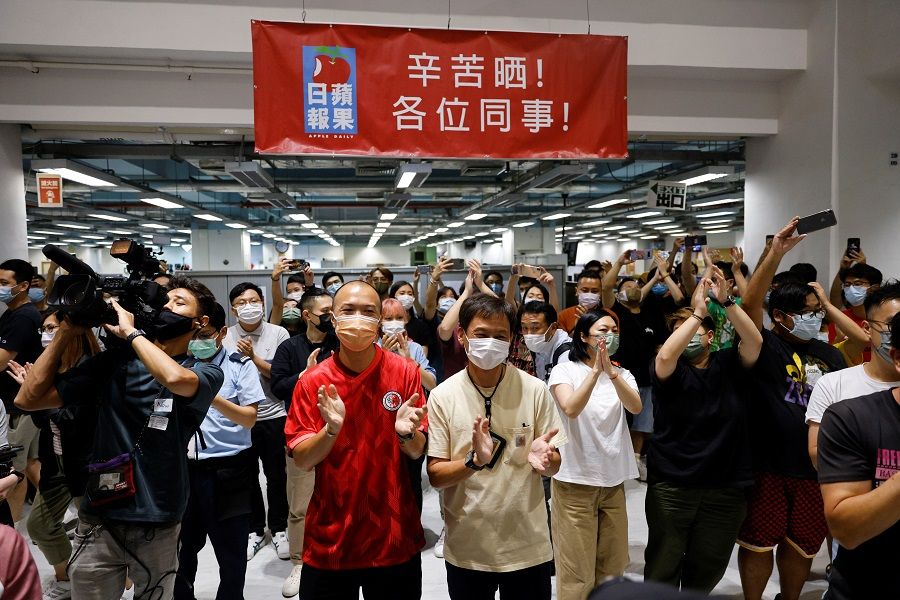
A paper that married celebrity gossip with a strong political stance
This ironic scene is actually very characteristic of Apple Daily. It had a vibrant and dynamic existence, garnering criticisms and applause at the same time. It began life in 1995 as a small tabloid that thrived on sensational headlines. In fact, it spearheaded a paparazzi culture in Hong Kong media, reeling readers in with tidbits about celebrities' private lives and gossip. The paper got itself embroiled at times in scandals over its professional ethics. Its cost-cutting methods also indirectly forced its peers to shutter their doors. But its tainted moral image did not turn readers away but instead contributed to its success. Once, Taiwan and Singapore media shuddered at the mention of "Apple Daily" for fear that its ways would spill over to their respective media scenes.
However, the content of Apple Daily reports grew more diverse later on. It became a hodgepodge repository of horse racing news and prostitution guides on the one hand, and political analysis and expert columns on the other. Its founder Jimmy Lai combined his anti-communist political stance and business acumen in shaping Apple Daily into a public opinion battleground that enjoyed commercial success and the support of the public. The paper also played a role in political mobilisation by inserting anti-establishment pamphlets with the paper during rallies and demonstrations. In this way, the paper got sold, a political agenda was furthered and profits streamed in as well.
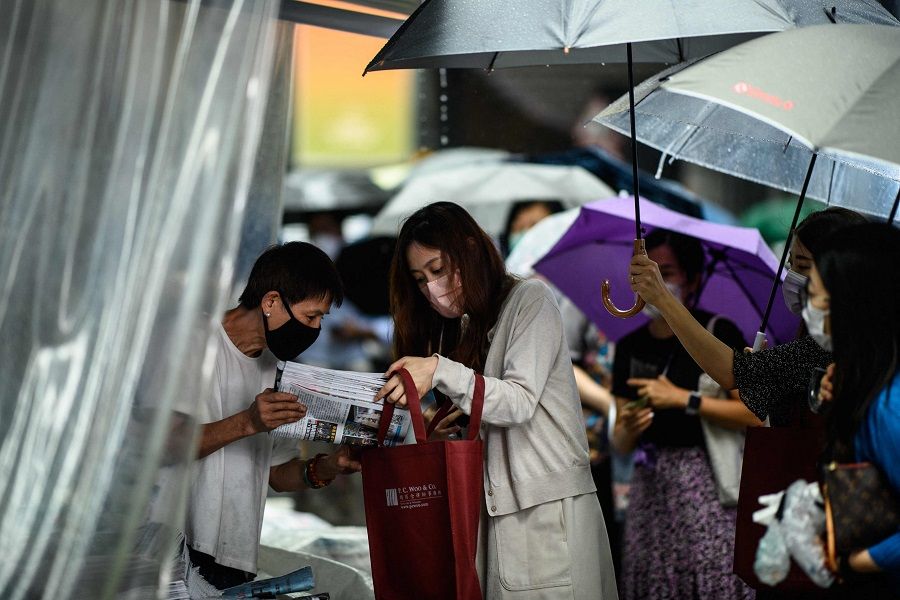
The paper did not hide its anti-communist stance at all. In the parlance of some Hong Kongers and international media, the terms "anti-communist" and "pro-democracy" mean the same thing. As a result, Apple Daily, which had its humble beginnings as a tabloid, gained immense street cred due to its political leanings.
According to a media credibility survey conducted by The Chinese University of Hong Kong's School of Journalism and Communication, between 1997 and 2013, Apple Daily's credibility among the public was always among the bottom three. But after 2013, when the credibility of Hong Kong media was declining, Apple Daily's credibility soared to third place in Hong Kong. In 2019, it was second only to the South China Morning Post and Ming Pao.
But it embodied the chaos and contradictions unique to Hong Kong, that is a society that has flexible rules, that embraces mass culture and is full of vitality. Its very existence was testament to Hong Kong's ability to withstand and digest internal tensions.
A changed milieu
In the last ten years, due to Beijing's influence and the influx of mainland Chinese capital into Hong Kong, the SAR went through a sensitive period in which the relationship between the mainland and Hong Kong changed for the worse and numerous social upheavals including the Umbrella Movement, the Mong Kok civil unrest, and the anti-extradition bill protests occurred. While political polarisation had the mass media swaying left and right, Apple Daily stood firm on one side of the spectrum, winning itself a group of loyal supporters. Indeed, Apple Daily should be commended for devoting resources to investigative reports, maintaining a critical stance, and playing the role of checking the government. However, during the anti-extradition protests, some of its reports deviated from the facts, sparking conspiracy theories and severely misleading society.
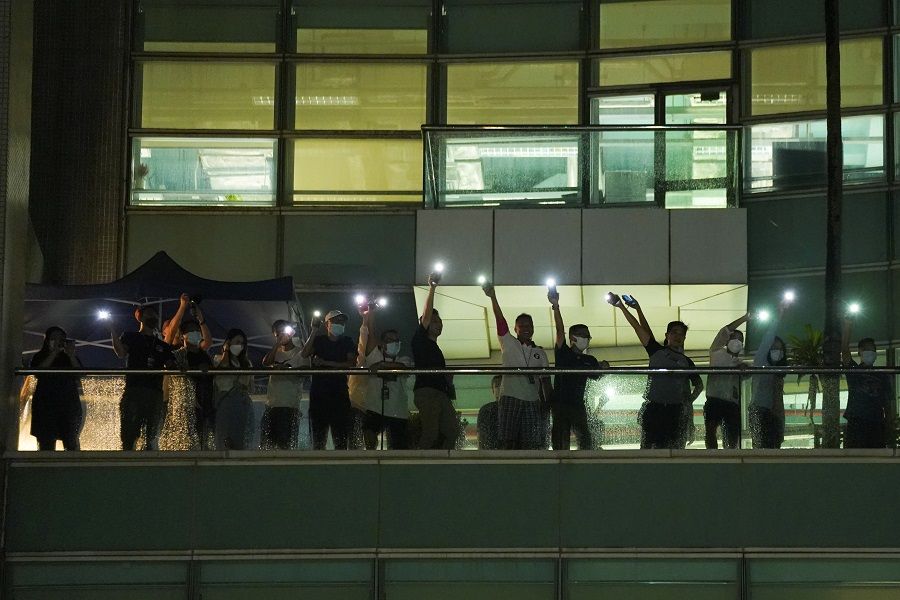
Apple Daily is actually quite flawed and had overstepped its boundaries as a media outlet, making it difficult for people to evaluate it purely based on "news value". But it embodied the chaos and contradictions unique to Hong Kong, that is a society that has flexible rules, that embraces mass culture and is full of vitality. Its very existence was testament to Hong Kong's ability to withstand and digest internal tensions. The paradox is, Apple Daily's credibility soared when Hong Kong society was at its most frayed and divided and now it is bowing out amid the political polarisation and increased mainland China-Hong Kong tensions that it had a part in exacerbating. As radical as Apple Daily was, it was unable to bear the consequences of knife-edge tensions between the mainland and Hong Kong.
Put in another way, Hong Kong can no longer accommodate Apple Daily. The unprecedented damage wreaked by the anti-extradition bill protests has given Beijing reason and determination to reset and "cleanse" Hong Kong with a heavy hand. While Apple Daily is perhaps the media that met its demise in the most dramatic way, it is probably not the last that will be dealt with in a similar manner. The bone-chilling effect of its closure will be to further curtail Hong Kong's freedom of expression. The film and publishing industries in Hong Kong - not only the media - will also look very differernt.
The closure of Apple Daily before 1 July leaves the paper with somewhat of a "martyr" status and also symbolises the central government's tough stance in governing Hong Kong.
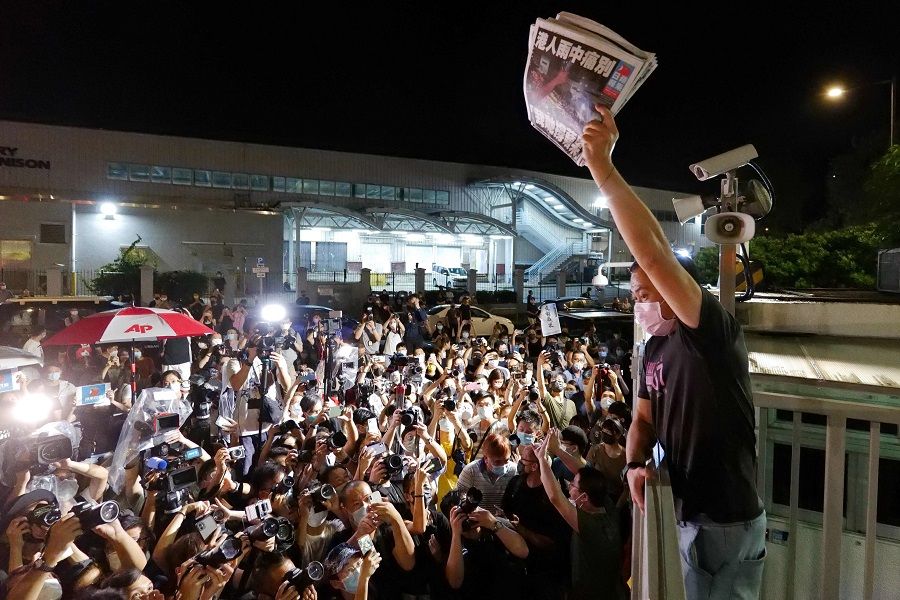
Yesterday, Hong Kong's Apple Daily walked into the annals of history. I am not a loyal reader of the paper and cannot comment on how big of a pity this is. But I would have hoped that it adjusted itself or changed its course in response to professional evaluation by its peers or the reader's choice, rather than the national security law. The authorities should also understand that getting rid of Apple Daily does not mean that the deeper problems in Hong Kong society have been resolved. Otherwise, it would be treating the symptoms as the root cause of the illness. The closure of Apple Daily before 1 July leaves the paper with somewhat of a "martyr" status and also symbolises the central government's tough stance in governing Hong Kong. The outcome the latter wants to make clear is this: it will leave no room for compromise with opposition forces, resistance is futile, and lastly, without "one country", there can be no "two systems".
Related: Governing Hong Kong: Beijing needs to tread carefully with the national security law | [Photo story] Hong Kong national security law: A different birthday for Hong Kong | Overhaul of Hong Kong's electoral system: Is it still 'one country, two systems'? | Eight months after national security law: What's become of Hong Kong?
